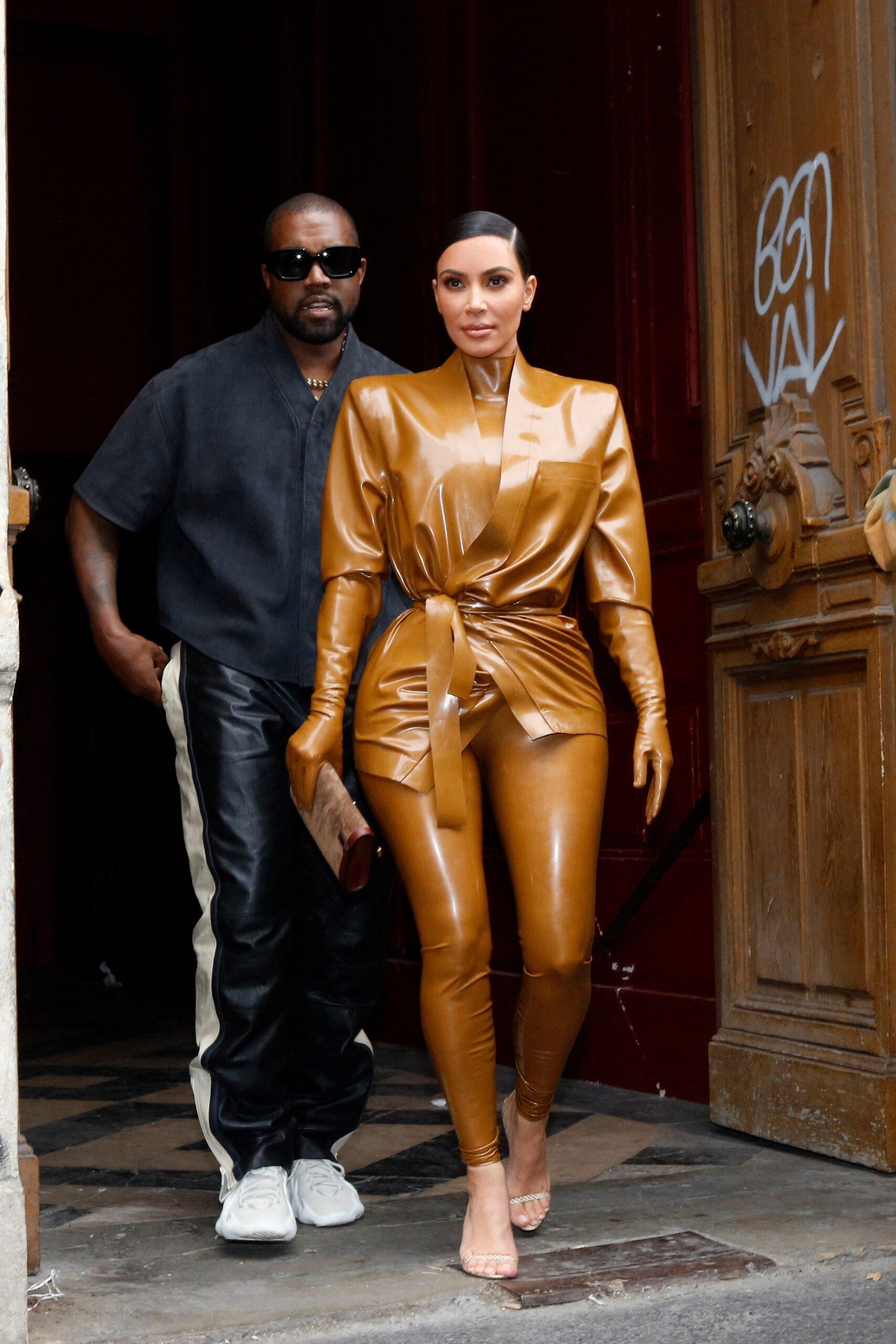Entertainment
Inside Team USA’s Dramatic Journey to the 2026 Winter Olympics (Excl)

The 2026 Winter Olympics are officially here — and Team USA is arriving in Italy with star power, storylines and sky-high expectations.
As the world’s best athletes descend on Milan and Cortina d’Ampezzo, all eyes are on the Americans: from Ilia Malinin’s can’t-miss moment in men’s figure skating to Mikaela Shiffrin’s long-awaited redemption tour on the slopes, and Madison Chock and Evan Bates chasing gold as newlyweds in their fourth Olympic Games together.
With pressure mounting and history on the line, these athletes aren’t just competing for medals — they’re skating, skiing and sliding into some of the most defining moments of their careers.
Us Weekly spoke exclusively to some of Team USA’s biggest stars as they prepare to take center stage when the Milano Cortina Games kick off February 6.

Redemption Mode
Some of the most powerful Olympic stories are born from heartbreak.
In 2022, alpine skier Mikaela Shiffrin arrived in Beijing as a heavy favorite, expected to dominate the slopes. Instead, she suffered a stunning series of DNFs (Did Not Finish) and left without a medal. “A lot of people who were tuning into Mikaela Shiffrin for her biggest race were tuning in when I didn’t win a medal,” Shiffrin tells Us. “They were saying, ‘Don’t even come home. You failed us. You didn’t bring home any gold.’”
The emotional weight of that moment has stayed with her — and reshaped her perspective heading into 2026. “That’s the hardest thing or the most loaded thing, and I’m very aware of it now, emotionally and mentally,” she continues. “The hurdle I’ve been working on with my team and with my psychologist and with my family and everybody around me is: We could go to these Games and we could do everything right, and it could still go wrong.”
Now, coming off a dominant season that saw her make World Cup history, Shiffrin, 30, is embracing a different mindset. “Going into [the Olympics] as an athlete, you’ve really got to be open-minded,” she explains. “Now that we have all of this in- formation, all of this experience, could we boil it down a little bit and remember that we’re just ski racing here?”

Redemption is also front and center for the U.S. women’s figure skating team, which heads into Milan Cortina with unfinished business. After leaving Beijing without the gold many believed was within reach, the Americans are skating with something to prove — and the depth to do it.
Amber Glenn, Isabeau Levito and Alysa Liu headline a stacked field, blending technical firepower with hard-earned experience on the world stage. For these skat- ers, 2026 isn’t just another Olympic cycle — it’s a chance to turn lingering frustration into gold.
“If we do our jobs in Milan, then more than likely some- one is going to be up there,” Glenn has said of the podium.
American Pride
For many athletes, the Olympics represent more than medals — they’re a rare chance to unite a country.
“It’s one of the greatest honors to be able to go to the Olympics and represent the U.S.,” ice dancer Madison Chock, 33, tells Us. “For us being Americans, we have such pride in our patriotism and really, the American dream.”

That responsibility isn’t lost on veterans like hockey player Hilary Knight, who will compete in her fifth and final Games. “If you want to call us sports ambassadors or sports envoys, we can have an impact on someone’s life in a small way,” Knight, 36, says. “I do think there’s a greater responsibility when you’re representing your country on the world stage.”
Honorary coach and NBC correspondent Snoop Dogg agrees. “One thing about the Olympics that I love is that it gives me a chance to be in front of people to represent what Americans look like, what we feel like, how we love, how we appreciate,” he’s said.
High-Stakes Drama
If any event captures the emotional intensity of the Olympics, it’s figure skating — and few understand that better than Tara Lipinski and Johnny Weir.
“You hear the music, you see the rings, there’s this magic to it,” says Lipinski, 43, who won gold at the 1998 Nagano Olympics at just 15 years old. “I think that’s why the whole world loves this event. It’s one of these things where you realize that this group of athletes has sacrificed their whole life. They’re building to this one moment in time. It’s four minutes on the ice that could change their entire life.”
For Lipinski, that emotional cocktail is exactly what makes the sport unforgettable.
“It’s everything you could want,” she adds. “The pressure, the suspense, the glitz, the glamour.”
Now working together as NBC Sports analysts, Lipinski and Weir experience those moments from the booth — but the nerves never disappear.
“Figure skating isn’t known as the most hugs and kisses, warm and fuzzy sport,” Weir, 41, explains. “But we all appreciate how small and niche and special this family is. As the older generation watching the younger generation of skaters, we want the best for them because we know exactly how it feels to be in their shoes.”
Snowboarder Chloe Kim, 25, has already had a front-row seat to Olympic drama before even strapping in. The reigning halfpipe superstar entered the season sidelined by a torn labrum in her shoulder that left her status uncertain.
For the athlete, the weeks leading up to the Games became a test of patience and resilience — rehabbing, recalibrating and waiting to see if her body would cooperate in time. Whether she’s at full strength or fighting to find her rhythm, Kim arrives carrying the emotional weight of a comeback that started long before the Opening Ceremony.
Must-Watch Phenom
The Olympic experience is one unlike any other — with athletes from all over the world converging in one place, each chasing a moment of immortality. Sixteen different sports disciplines will be featured in Milano Cortina, with more than 3,500 athletes representing 93 countries.
And while the depth of competition is staggering, a select few still rise above the noise and become must-watch storylines. One of them is Team USA’s Ilia Malinin, who will have all eyes on him when the men’s figure skating competition begins.
“There’s kind of different ways I approach it,” Malinin, 21, tells Us. “I like to embrace it a lot, especially closer to a competition. Feeling that pressure is kind of like, ‘OK, everyone’s looking at me. Now I really need to be at my best. Be on my A-game.’”
But even the sport’s most dominant skater admits the pressure can cut both ways.

“There’s also days that won’t be the best days,” he continues. “A lot of the time, what I’ll do is say, ‘OK, there’s a lot of pressure on me, let me just block this out and focus on what I really need to do and try not to think about people’s expectations of me.”
Nicknamed the Quad God, Malinin knows fans often see him as untouchable — something he’s eager to challenge on Olympic ice.
“Everyone sees me at competitions and I’m just so focused, I’m really in a different mindset where I’m pretty much as perfect as I can be,” Malinin explains. “But in reality, I’m not perfect. I’ll have bad days, I’ll have good days. It’s really the thing that tells people, ‘Oh, he’s really human like the rest of us.’”
The MVPs You Won’t See on the Podium
Beyond the athletes, the Games will be stacked with scene-stealing personalities, led by Snoop Dogg, who’s returning as an on-air commentator and cultural ambassador — and promising to keep things anything but predictable.
“You know, one thing about me, I’m unexpected, I’m unorthodox, but I’m always full of fun,” Snoop tells Us, adding that his mission is “making sure that America is represented in a peaceful, beautiful way to the globe.”
While he’s happy to entertain Olympic viewers, the rapper admits he’s still learning — though there’s one event already at the top of his watch list. “I think the sport I’m looking forward to the most [is] figure skating, because I just really, truly appreciate and love the art and the craft that it takes to become a figure skater,” he says — especially with the music, the fashion and the possibility that “my girl, Martha Stewart, may meet me out there at the front row of the figure skating final.”
He’ll be joined around the Olympic universe by Flavor Flav, official sponsor and “hype-man” for the USA Bobsled and Skeleton team, bringing his trademark energy as an enthusiastic supersupporter in the stands. Also on board: Stanley Tucci, who’s set to lend his signature charm and sophistication to cultural and culinary storytelling from Italy — proving that at these Games, the characters off the field may be just as compelling as the competition itself.
Vonn Is Back — and So Is the NHL
The 2026 Games mark a couple of noteworthy returns: skier Lindsey Vonn and NHL players participating in the Olympics for the first time since 2014 in Sochi.
Vonn, 41, who last competed in the Olympics in 2018, announced her return to the sport in November 2024 and earned a spot on the team in December 2025, a miraculous comeback that felt nearly unfathomable after having a partial knee replacement just months before coming out of retirement.
“But after a successful season that saw her reach the podium in seven of eight races, the legend declared, “I’m not the underdog anymore!” Vonn, a three-time Olympic medalist, reflected, “This is 24 years after my first Olympics. I’ve won everything I could have ever won. I’m not doing this to prove anything to anyone. I’m doing this because I think I can do well, it’s a meaningful place for me, and I think I can make a positive impact.”
Despite tearing her ACL during a World Cup race in Switzerland just days before the start of the Games, Vonn said she still intended on competing.

“I know what my chances in these Olympics were before this crash, and even though my chances aren’t the same now, there is still a chance,” she shared via Instagram. “And as long as I have a chance, I will not lose hope. I will not give up! It’s not over yet!”
Men’s hockey will also be a focal point, as the NHL’s best players will represent their home countries for the first time in over a decade.
New Jersey Devils star Jack Hughes will play for Team USA alongside his older brother, Quinn Hughes, which means the entire Hughes family is looking forward to a European vacation.
“A bunch of my cousins, aunts and uncles are making the trip,” Jack, 24, tells Us. “We’ve got some friends coming over, too. All the people in our lives are so excited to be part of this. It’s such a special event. You never know if we’ll be able to go back.”
Pomp and Circumstance
Of course, no Olympics would be complete without the spectacle. The 2026 Games officially kick off February 6 with a massive Opening Ceremony at Milano San Siro Olympic Stadium — a moment athletes say never gets old.
This year’s will feature performances from global super stars Mariah Carey and Italian icon Andrea Bocelli, setting the stage with equal parts star power and national pride. “I’m just looking forward to soaking it all in,” bobsledder Boone Niederhofer says.
For Chock, the spotlight is a reminder of what it took to get there. “It’s the years, decades of work that you put in,” she says. “But that’s what makes the Olympics special.”
And when the Games draw to a close, the celebration will come full circle at the Closing Ceremony on February 22 at the historic Arena di Verona, where athletes finally get to exhale, celebrate their accomplishments and pass the Olympic flame forward — a final, emotional send off to two unforgettable weeks in Italy.
Entertainment
BLACKPINK’s LISA Stuns in Black Bikini Top

BLACKPINK’s LISA
Rocks Black Bikini Top For Snow Day
Published
BLACKPINK’s LISA heard a groundhog predicted six more weeks of winter in the United States and she decided to take full advantage … slipping into a bikini for a sexy photo shoot in the snow.
The Thai K-pop mega star ventured out into the frozen tundra in her Nike x NOCTA x Chrome Hearts puffer jacket and matching pants and unzipped her coat to reveal her slim figure in a skimpy bikini top.
Frankly, we’re surprised the snow around LISA isn’t melting here … that’s how HOT she is!!!
LISA recently inked a deal with the Swoosh and starred in an ad for NikeSKIMS … so she’s very hot right now in the fashion world, too.
Check out the gallery to see LISA’s sexy winter wonderland getaway … and then try your puzzle-solving skills with this game!
Entertainment
Ellen Pompeo recalls first conversation with Eric Dane after learning of “Grey's Anatomy” costar's ALS diagnosis
:max_bytes(150000):strip_icc():format(jpeg)/ellen-pompeo-eric-dane-020426-28143186a8364c22950ba6387ad9633a.jpg)
Pompeo spoke of her connection to her co-star dor the ALS Network Champions for Cures and Care Gala last month.
Entertainment
President Trump calls Savannah Guthrie amid search for “Today” anchor's missing mom Nancy
:max_bytes(150000):strip_icc():format(jpeg)/donald-trump-savannah-guthrie-020426-8f673e9d5491497bbb0fa52c0b6172df.jpg)
The POTUS shared “words of support for her and her family,” according to NBC News journalist Tom Llamas.
Entertainment
General Hospital Early Spoilers Feb 9-13: Anna Loses Control & Sonny Reaches His Breaking Point

General Hospital spoilers for February 9th through the 13th suggest Anna Devane (Finola Hughes) is going absolutely insane and Sonny Corinthos (Maurice Benard) freaking out about something really important.
As we always do on the early edition, we’re going to start with what’s coming the rest of this week and then dive into what is coming next week. There is huge stuff on the horizon.
General Hospital Spoilers: Michael Could Lose
On Wednesday, February 4th, Michael Corinthos (Rory Gibson) is in a position where he knows he needs to cut a favorable deal with Willow Tait (Katelyn MacMullen) on custody before DA Jacinda charges him with Drew Cain (Cameron Mathison)’s shooting. If he waits and that happens, Michael could lose the kids completely. He needs to move while he still has the upper hand to try and make something happen.
At Diane Miller (Carolyn Hennesy) and Alexis Davis (Nancy Lee Grahn)’s office, Willow tells Michael that she hasn’t agreed to anything yet. She knows what is coming down the pike for him because she is trying to frame him. Ric Lansing (Rick Hearst) is there representing Michael, while Alexis represents Willow. Alexis is pushing hard to get Willow at least some custody and visitation so she can keep accessing Scout Cain (Cosette Abinante). Sonny wants Ric to make this deal happen because he doesn’t want Willow cut out of the kids’ lives, but Michael is being very stubborn.
Anna Devane’s Mental Health Crisis and the Faison Conspiracy
Anna begs Felicia Scorpio (Kristina Wagner) to get her out of there so she can stop Cesar Faison (Anders Hove). So, Anna is being held over in France, and Felicia, Emma, and Mac Scorpio (John J. York) head over there to see what to do. It looks like they want to stash her somewhere because Anna is talking like a crazy person.
Ross Cullum (Andrew Hawkes), Pascal (Mark Forget), and Jenz Sidwell (Carlo Rota) gaslit Anna. It appears they knocked her out and transported her to France, which explains why Pascal left Port Charles to go to France. Anna has no idea she was ever held captive at Wyndemere. And she seems completely unhinged.
Felicia may struggle to believe that Faison is alive. It would be a nightmare for her if it were true. It looks like Sidwell and Cullum want Anna written off as a crazy person making conspiracy theory claims to destroy her reputation and get her out of their way. Mac, Emma, and Felicia are all going to try to get Anna calmed down, get her released. And bring her back home to Port Charles.
Sonny and Jason Plot Against Sidwell While Romance Blooms on GH
Jason Morgan (Steve Burton) and Sonny are working on a strategy against Sidwell. Sonny tells Jason that the more they know, the easier it will be to take him out. They have to get that photo proof. They know that this guy isn’t just a problem for Sonny and Laura Spencer (Genie Francis), but also the source of the problem for Britt Westbourne (Kelly Thiebaud).
Josslyn Jacks (Eden McCoy) is digging for dirt. And it may be on Cullum. Meanwhile, Lulu Spencer (Alexa Havins) opens up to Laura. She is going to tell her about the Nathan West (Ryan Paevey) kiss and that she has feelings for him. Laura will tell Lulu she might actually have fewer obstacles with Nathan than she thinks.
Laura may point out that Nathan has been gone from Maxie Jones (Kirsten Storms)’s life for seven years through nobody’s fault other than Faison. Damian Spinelli (Bradford Anderson) is currently the man in Maxie’s life. And Dante Falconeri (Dominic Zamprogna) is not in Lulu’s life romantically either. Nathan eventually goes and confesses to Nina Reeves (Cynthia Watros), telling her he has feelings for Lulu.
Nina also has face time with Liesl Obrecht (Kathleen Gati). And we’ll see if she tells her about Nathan and Lulu. She may also vent about Willow and her toxic attitude regarding Michael. Meanwhile, Drew is discharged from General Hospital. He is sent home with Willow, who has a hospital bed set up in the living room for him. It looks extremely tense.

General Hospital Spoilers: Custody Battles and Danger for Drew Cain
On Thursday, February 5th, Michael gives Carly Corinthos Spencer (Laura Wright) and Sonny an update on the custody mediation. Willow is ready to crush Michael, so it will be interesting to see if compromise is even possible or if Willow is going to get greedy and want everything.
Curtis Ashford (Donnell Turner) needs some help from Alexis. He may want divorce papers drawn up or may want to force Portia Robinson (Brook Kerr) to get a DNA test. Harrison Chase (Josh Swickard) loses his temper, which may lead to another argument with Michael if he hears Michael isn’t willing to compromise on visitation. Many people don’t know what Michael knows regarding what Willow was doing to Sasha Gilmore (Sofia Mattsson) and Daisy, which is a big reason driving his current decisions.
Kai Taylor (Jens Austin Astrup) explains himself to Trina Robinson (Tabyana Ali). And Drew is completely shocked. I am wondering if Kai is going to go over to the house, check on Drew. And tell him that Willow was the one who shot him. Drew has locked-in syndrome and is helpless, so Kai may be concerned. Even though Drew is a bad guy, he is at risk from the woman who tried to kill him before.
General Hospital Spoilers for February Sweeps and Valentine’s Day
On Friday, February 6th, Britt gives a little pushback, possibly to Cullum. She needs another dose of her meds to give to Jason to get them reverse-engineered. Michael lets Brook Lynn Quartermaine (Amanda Setton) in on a few things bothering him, including the PCPD interrogation and his concerns about the shooting charges and the custody case.
The following week, February 9th through the 13th, we are midway into February Sweeps. We’re going to see Portia and her DNA test results coming soon. I’m dying to know if it’s going to be Curtis or Isaiah Gannon (Sawandi Wilson). Sonny doubles down on his plan to protect Michael, and he and Jason continue their plot to take down Sidwell.
Drew is worried about what Willow may do to him. I expect him to recover from his locked-in state but then hide it from her, which would be a very General Hospital thing to do. Jack Brennan (Chris McKenna) is going to be livid that Josslyn put herself on Cullum’s radar, which is exactly what Jack didn’t want for her.
Britt is going to spend Valentine’s Day with Jason. They’re going to get a little romantic, but they’ll have to do it on the sly. Ric takes Elizabeth Webber (Rebecca Herbst) out on a date soon. And there is supposed to be a major development for them. Willow continues pushing for more access to her kids while trying to get Michael in the crosshairs of the PCPD.
Sidwell gets an ultimatum from Lucy Coe (Lynn Herring)—likely a “me or Ava Jerome (Maura West)” choice. Jordan Ashford (Tanisha Harper) and Curtis make more time for romance. Nathan and Lulu find it hard to stay away from each other. And we may see more heat between them. Very importantly, Maxie wakes up. We’ll see how long it takes until someone tells her that Nathan is back from the dead. That information will likely be withheld until she is stable.
Entertainment
Zenith Zion Says Going To Kick Her Butt

Footage has surfaced showing Chrisean Rock reacting to Zenith Zion saying that she’s going to “kick” her “ass” in the boxing ring in April.
RELATED: Pepa’s Daughter Egypt Criss Turns Heads After Offering To Hop In Ring With Chrisean Rock For Super Middleweight Championship (VIDEO)
Chrisean Rock Reacts To Zenith Zion Saying She’s Going To Kick Her Butt In The Boxing Ring
On Tuesday, February 3, Instagram user @livebitez posted footage from what appeared to be a recent livestream showing Chrisean Rock with her boxing coordinators. Furthermore, in one clip, Rock tells viewers that she has “a lot of pain and anger” inside her, so the match “should be cool to watch.” Meanwhile, another clip showed what appeared to be the moment when Rock was informed that her opponent was Zenith Zion.
“Who that?” Rock says initially, staring at a phone screen. “What’s her name?”
As Rock started scrolling on the phone, the coordinators told her that she could do her “homework” later. But one then asked, “What’s going through your mind right now?”
“So how long is the fight? And how many minutes in the ring?” Rock asked, pounding her fist.
Furthermore, another clip showed Rock watching a video where Zion shared a direct message for her, saying, “Be prepared, Chrisean. ‘Cause I’m coming to kick your ass.”
“Oh, that’s who that is,” Rock says in reaction. “How is she already talking stuff? We don’t know each other like that.”
See the videos below.
Social Media Continues Weighing In
Social media users shared their thoughts on Chrisean Rock’s reaction to Zenith Zion in the comment section of @livebitez’s post.
Instagram user @prissykrissy19 wrote, “Now if she loses, she finna go on a 30 day rant abt how that boxing company used her to get clout and blah blah blah blah! I hope shorty beats her back into oblivion!…”
While Instagram user @llethabellissimo added, “I think Chrisean seemed a little hesitant to me lol She’s asking why the lady is talking smack already and acting as of they should be friends lol I don’t think she’s taking this too seriously lol”
Instagram user @chriseancam wrote, “She’s scared lol get ready for her to start her skateboarding journey with tony hawk as her trainer 😂😂😂😂😂”
While Instagram user @pretty_kiitty_ added, “I don’t care if she looses. I’m just happy she isn’t dealing with blue and his BS.”
Instagram user @the_investhers wrote, “She super scared. Girl barely a street fighter finally learning to use both hands. She ain’t ready for no real boxing match 🥴😩🤣”
While Instagram user @flycitycutz101 added, “Chrisean is way in over her head lol .. this different from fighting on Baddies 😂😂😂”
Instagram user @ohsheila_49 wrote, “She bout to get that other tooth pushed out. Smh She Never finishes anything she starts and thinks she knows it all! I dont see her going thru with this…”
While Instagram user @postingblueface added, “Will see about this when April comes 😂😂 tf ain’t no way possible anyone believes she’s that committed…”
More On Zenith Zion Saying She’s Going To Kick Chrisean Rock’s Butt In The Boxing Ring
As The Shade Room previously reported, last month, XRumble announced that Chrisean Rock signed a deal to fight in the platform’s first female Super Middleweight Championship fight. The fight goes down on Saturday, April 25, at Harrah’s Philadelphia Casino in Chester, Pennsylvania. However, at the time of the announcement, Rock’s opponent remained undecided.
RELATED: Chrisean Rock Responds After Claressa Shields Sends Support Following Announcement Of Her Boxing Deal (EXCLUSIVE)
By the end of the month, Pepa’s daughter, Egypt Crisis, dropped her proposal for stepping into the ring with Rock. However, Zenith Zion was ultimately chosen as Rock’s opponent, and she didn’t hold back with sending her sentiments to Rock.
RELATED: Oop! Chrisean Rock’s Opponent For Super Middleweight Championship Boxing Match Revealed Along With SPICY Message (VIDEO)
What Do You Think Roomies?
Entertainment
Tense Survival Thriller Pushes Suspense Into Extreme New Heights

By Robert Scucci
| Published

I can finally end my search for an action adventure thriller set entirely in a hot air balloon after watching 2019’s The Aeronauts. While we can get into the nitty gritty about how it’s “based on true events,” as depicted in the 2013 Richard Holmes book Falling Upwards: How We Took to the Air, anybody with access to Wikipedia can do that. Instead, let’s talk about the film itself. Since we’re ultimately dealing with a fictional piece of cinema inspired by multiple real-life balloon ascents, it’s all but expected that creative liberties are taken, and composite characters are stitched together from their historical counterparts for the sake of a cleaner, more dramatic story.
The Aeronauts, like most films that carry the biographical label, is no exception. As long as you’re not treating it like a history lesson, it’s well worth your time for the visuals and sheer level of suspense alone. I never thought a movie about a giant balloon could be this intense, but here we are, watching two deeply committed people float through the troposphere without even packing proper winter coats.
Floating High And Above

Set in 1862 London, The Aeronauts centers on scientist James Glaisher (Eddie Redmayne) and balloon pilot Amelia Wren (Felicity Jones). James believes that ascending to unprecedented heights will allow him to study atmospheric patterns in a way that could eventually make weather prediction possible. When the Royal Society refuses to take him seriously enough to fund the project, he turns to Amelia, whose skill and nerve make the entire expedition feasible. Through a series of flashbacks, we learn about the political resistance and personal motivations surrounding the journey, but that groundwork is not the main reason you’re here.
The real spectacle unfolds once James and Amelia leave the ground, rising beyond 30,000 feet and shattering the standing record for balloon travel. Completely devoted to his research, James pushes forward as Amelia repeatedly urges him to descend. Awestruck by the vast skyscape around them, James loses track of the balloon’s physical limitations and just how drastically the temperature has dropped while he continues taking notes and running tests.

When it becomes clear they’ve gone far too high for their own good, Amelia takes decisive action after recognizing the signs of James’ worsening hypoxia. That plan immediately falls apart when she realizes the gas release valve at the top of the balloon has frozen shut. Reduced to a speck drifting through the sky, Amelia braves brutal conditions in her attempts to bring both of them back to land. The elements are not on her side, and she soon begins suffering from frostbite as well. With their lives and James’ research hanging in the balance, every split-second decision carries real consequences, and the margin for error disappears fast.
Stunning Cinematography All Around

While the flashback sequences in The Aeronauts are necessary for context, they lean into familiar tropes tied to dangerous missions. Both characters are haunted by their pasts and repeatedly revisit traumatic moments while grappling with their present situation. If I’m being completely honest, I have a hard time taking people in top hats seriously, so these scenes occasionally play as unintentionally funny for me. I fully recognize that I might be a sample size of one here, and your mileage may vary.
What truly impressed me were the sequences that take place inside and around the balloon itself. The horizon, the clouds, and even butterflies drifting through air currents at what were once unheard-of altitudes are the real draw of The Aeronauts. Ice crystallizing across the balloon as Amelia struggles with the frozen gas valve, along with wide shots that emphasize how small she and James are against the open sky, are genuinely striking. The storms that threaten to consume them as they push higher in the name of science add another layer of tension, made all the more effective by how grounded and tactile everything looks.


It’s safe to assume The Aeronauts received a healthy dose of VFX in post-production, but it’s difficult to spot while watching. The visuals feel real and cohesive, creative liberties with characterization aside, and the result is an immersive experience even from your couch. If you’re looking to challenge your fear of heights, or you’re simply in the mood for historical fiction that focuses on discovery rather than warfare, you can stream The Aeronauts on Prime Video as of this writing.
Entertainment
Kim Kardashian Weighing Ye Concerns Amid New Romance
![Drew Barrymore arriving to the 2022 White House Correspondents' dinner held at the Washington Hilton Hotel on April 30, 2022 in Washington, D.C. © Tammie Arroyo / AFF-USA.com. 30 Apr 2022 Pictured: Pete Davidson and Kim Kardashian. Photo credit: Tammie Arroyo / AFF-USA.com / MEGA TheMegaAgency.com +1 888 505 6342 (Mega Agency TagID: MEGA852841_013.jpg) [Photo via Mega Agency]](https://wordupnews.com/wp-content/uploads/2026/02/kim-kardashian-pete-davidson-1-scaled.jpg)
The rumored couple has reportedly slowed down their alleged romance, with the rapper’s feelings among the top reasons they chose to remain silent.
Kim Kardashian and Lewis Hamilton have been friends for decades, but recently sparked speculation that they might be taking things further after a few sightings in the United Kingdom and Paris.
Article continues below advertisement
How Are Kim Kardashian And Lewis Hamilton Choosing To Handle Things?
Sources very close to the budding romance between the pair revealed that they are pulling out all the stops and being very careful not to anger Ye, given his unpredictable nature and the history of friendship between him and Hamilton.
The rumored couple is well aware of how volatile Ye is and how much the news could trigger a reaction from him, which is why they are keeping this partly casual. Kardashian and Hamilton are just having fun together as they continue their friends-with-benefits relationship.
“Lewis and Kim are not dating exclusively. He’s not looking to settle down with anyone, including Kim,” a first source explained to The Daily Mail, while a second source emphasized that, “Lewis isn’t looking to be a stepdad. [He’s] not looking to be the ‘it’ couple with Kim.”
Article continues below advertisement
Kardashian and Hamilton had spent time together last year, before their sighting, at Kate Hudson’s New Year’s Eve party in Aspen, Colorado.
Article continues below advertisement
The Duo Had A Blast Over The Past Weekend In The United Kingdom
Hamilton and Kardashian fueled speculation when the business mogul’s private jet landed at an airport in the United Kingdom.
The purpose of her visit? It was reported that they were to spend quality time with the Formula 1 race car driver while engaging in several activities at the exclusive Estelle Manor in the Cotswolds.
As shared by The Blast, their time together was very romantic, as the couple enjoyed all the goodies, with bodyguards providing full protection along the way.
Hamilton and Kardashian were first pictured together at the 2014 GQ Men of the Year ceremony alongside her then-husband, Ye, and his then-partner, Nicole Scherzinger.
Article continues below advertisement
Kardashian and the racecar driver reportedly enjoyed an intimate dinner at a private room in the hotel and settled in for a spa massage for just the two of them.
The mother-of-four reportedly jetted out of the United Kingdom at 11 am on Sunday morning, and they were later spotted together at an airport lounge in Paris.
Article continues below advertisement
Kim Kardashian Has Featured On The Dating Scene A Few Times Since Divorcing Ye
![Drew Barrymore arriving to the 2022 White House Correspondents' dinner held at the Washington Hilton Hotel on April 30, 2022 in Washington, D.C. © Tammie Arroyo / AFF-USA.com. 30 Apr 2022 Pictured: Pete Davidson and Kim Kardashian. Photo credit: Tammie Arroyo / AFF-USA.com / MEGA TheMegaAgency.com +1 888 505 6342 (Mega Agency TagID: MEGA852841_013.jpg) [Photo via Mega Agency]](https://theblast.prod.media.wordpress.mattersmedia.io/brand-img/123/0x0/2025/02/17124021/kim-kardashian-pete-davidson-1-scaled.jpg?)
The socialite ventured into the high waters of dating in October 2021, and her first call was with Pete Davidson. Kardashian and Davidson were together for a year, during which he bonded with her kids and even got a special tattoo.
Following their split, the reality star reportedly tried again with pro footballer Odell Beckham, although nothing was confirmed from either quarter. However, a source shared that it was never a serious deal with Kardashian and Beckham, and that both understood this.
“It was always casual, but Kim has been really busy with other priorities and isn’t putting in as much effort. The dynamic lost its spark, but they are still friends,” the insider stated. The SKIMS founder went through a tumultuous divorce from Ye and eventually put everything behind her in 2022.
Kardashian, on her part, has been pretty vocal about her desire to couple up with a man who has good morals and values, and who exhibits calmness and dependability. In her words: “Takes accountability. I think that’s my number one thing.”
Article continues below advertisement
Lewis Hamilton Was Previously Linked With This Kardashian’s Sister

Kardashian is not the first member of the reality TV family the athlete has been rumored to be with. In 2015, the F1 racer had to explain to news sources that he and Kendall Jenner were just friends at the New York Fashion Week.
As noted by The Blast, the F1 champ reinstated his admiration for Jenner and her work ethic, calling her an incredible, level-headed, and focused model who exhibits such grown-up traits despite being a young woman.
Jenner was present at Hamilton’s 2015 event in Monaco alongside her pals Bella and Gigi Hadid, Kylie Jenner, and Hailey Baldwin. Before his latest sighting with Kardashian, Hamilton was linked to actress Sofia Vergara and even Shakira.
Sources close to both women, however, denied ever sharing anything romantic with the athlete, stating that their public sightings were far from dates and that they are just friends.
Article continues below advertisement
Kim Kardashian And Kanye West Reportedly Have A Smoother Co-Parenting Relationship

The mother-of-four gave an update on how far she and Ye have come in repairing their relationship after years of media drama and clashes. Kardashian told Khloé, during her appearance on the “Khloé In Wonderland” podcast, that she was relieved to see how things had turned around in recent months.
Khloé had noted that the former couple may have bonded over North West’s newfound love for producing music, to which Kardashian revealed that it is actually what North and her dad have in common.
“Even just coming up with stuff, we have to communicate about how North moves through that world and all these opportunities that come her way, and having to filter that and respecting his opinion on the things that go on with his kids is really important,” the SKIMS founder expressed.
She emphasized that she is a very empathetic person who prioritizes family over everything, despite their differences, but there were times she had to be super protective with the kids.
Entertainment
TMZ Sports Streaming Live From Newsroom, Join The Conversation!

TMZ Sports Live Stream
Join The Conversation!!!
Published
TMZ Sports is going live from the newsroom to discuss the day’s biggest stories … but we don’t just want folks to watch and enjoy the conversation, we want y’all to get involved!!
Hit the comment section as Babcock, Lucas, Dylan, Luca, and the whole crew break down the most important topics of the day … and we’ll be interacting with viewers throughout the program between 1 and 2:30 PM PT.
YouTube, X, TikTok … we’re everywhere.
So tune in, make fun of us, share your two cents, sound off about your favorite team … nothing is out of bounds.
Wednesday’s show will include an interview with Warren Moon, the big James Harden news, a big update on the Megan Thee Stallion and Klay Thompson relationship and so much more!!
Entertainment
This Kevin Costner Western is Netflix’s Newest Hit — and It’s Better Than Yellowstone

If you love Yellowstone and Kevin Costner, then you may just love this Western drama that’s currently trending on Netflix.
Released in 1994, Wyatt Earp stars Costner as the eponymous, real-life lawman who would go on to be involved in the O.K. Corral gunfight in 1881. The movie is a biographical epic of Earp’s life.
The film features a terrific ensemble cast that includes the late Catherine O’Hara, and while it received mixed reviews from critics at the time, it’s found more favor with fans over time.
Watch With Us breaks down why Wyatt Earp deserves its spot in the Netflix Top 10.
‘Wyatt Earp’ Chronicles the Life of a Fascinating Real-Life Figure
Wyatt Earp takes an in-depth look at Earp’s life from his teenage years during the Civil War, living on his family’s farm in Iowa, to becoming a lawman in towns like Wichita and Dodge City in Kansas and Tombstone, Arizona. From a young age, Earp is taught that only two things really matter in life: family and the law. Thus, Earp is flanked by his brothers James (David Andrews), Morgan (Linden Ashby) and Virgil (Michael Madsen), in addition to friend Doc Holliday (Dennis Quaid), in their eventual confrontation with outlaws at the climactic O.K. Corral, involving the Clanton and McLaury gangs.
As opposed to taking a more mythical or fantastical approach to this real-life material, director Lawrence Kasdan and co-writer Dan Gordon instead give Earp’s life a grittier, more realistic feel in addition to being a psychological portrait of the famous lawman. Rather than being a simple action epic, Wyatt Earp is far more interested in details and nuance, and the internal burden that Earp carries throughout his life — which includes a violent, dark side to Earp’s character.
The Long Runtime Gives Earp’s Life the Richness It Deserves
While some biographical films attempt to sum up a celebrity or important historical figure in just one or two short hours, Wyatt Earp gives its subject the courtesy of a more than three-hour film. Because of this ample runtime, more care is given to the historical detail and accuracy, giving way to more comprehensive storytelling. We’re given this excess time with Earp’s life from adolescence through middle age, and it allows for a deeper understanding of his psychology and his evolution of self, leading up to the major historical event that everyone knows him for.
Thus, far from a fast-paced epic, Wyatt Earp is a slow-burn character study with a Western setting that feels authentic instead of romanticized. Earp’s character arc is incredibly thorough, and the approach to depicting his character even has something of a documentary feel to it. While the slow pacing and occasionally disorganized narrative may turn some people off, those who enjoy biographical films that are concerned with the facts in addition to telling a compelling story will appreciate the lengths that Wyatt Earp goes to achieve this.
‘Wyatt Earp’ Is Character-Driven With a Strong Supporting Cast
While a movie like Tombstone — also about Wyatt Earp and the O.K. Corral — is more centered on the immediate lead-up to and action of the conflict at the O.K. Corral, Wyatt Earp gives a deeper focus to its sprawling cast of characters covering multiple eras of Earp’s life. For instance, Gene Hackman gives a terrific performance as Nicholas Earp, Wyatt’s stern and influential father, while Quaid infuses Doc Holliday with a vulnerability that rings true to the character.
In contrast to Tombstone and Kurt Russell‘s charisma-driven portrayal of Earp, Wyatt Earp finds strength in Costner’s more reserved depiction, more suited for a biopic approach. But besides Costner, the cast of Wyatt Earp is ridiculously stacked. The rest of the supporting cast includes the always-great O’Hara, who portrays Allie Earp, in addition to Bill Pullman, Mark Harmon, Isabella Rossellini, Tom Sizemore and Adam Baldwin.
Entertainment
Extreme Post-Apocalyptic Thriller Will Either Cure You Or Break You

By Robert Scucci
| Published

One of the common pitfalls post-apocalyptic thrillers run into is trying to do too much at once, because there are a lot of angles to consider. The Mad Max franchise works because there is dense, folklore-driven worldbuilding that we’re made aware of as a smaller group of people navigate the wasteland looking for answers. The 28 Days Later films handle this well too. We’re briefed on what’s happening globally, and then things are handled locally.
2025’s Uncontained, despite the fact that it has a lot going for it, struggles with this balance. The result is a tonally inconsistent film that I wish stuck the landing better, because the potential is clearly there.
Found Family During End Times

Billed as a zombie horror drama, Uncontained tells a much more personal story through the eyes of Dan (portrayed by writer director Morley Nelson). Dan is a drifter who appears to be immune to the zombie virus that has decimated society, and he eventually happens upon a smart house occupied by two children, Jack (Jack Nelson) and Brooke (Brooke Nelson).
Their mother, simply billed as The Woman (Nicole Nelson), works for Homeland Security and is desperately searching for a cure, because Jack carries a latent version of the infection.

Dan, initially just looking for shelter, slowly becomes a surrogate father figure for Jack and Brooke. The Woman is also glad to have him around, mostly because he’s able to clock an intimidating amount of time on the treadmill that doubles as a power source for the house.
Jack handcuffs himself to the bed before going to bed, because he occasionally turns into a bloodthirsty zombie in his sleep and needs to wait out his episodes so he doesn’t harm his family. He also sets elaborate snare traps in the backyard and spends his time studying captured zombies, which initially disgusts Dan, who doesn’t yet realize that he and Jack have more in common than either of them would like to admit.
The B Story

Meanwhile, Uncontained introduces additional conflict in the form of militia leader Brett Carson (Peter O’Meara), who refuses to leave the property because he’s searching for his missing daughter, Melanie (Courtney Blythe Turk). This entire plot line feels largely unnecessary, as it neither helps nor meaningfully disrupts the dynamic inside the house that Dan and the family are occupying.
The limited value these scenes provide comes mostly from comic relief, particularly when Brett talks shop with a police officer who grows more visibly concerned with each passing exchange, as if silently thinking, “dude, you need to go home before you get killed.”

Speaking of comic relief, Uncontained earns genuine points for the dynamic it establishes between Dan, Jack, and Brooke, and The Woman. Dan has a gruff exterior and doesn’t look like the kind of guy who enjoys screwing around. But the moment Brooke offers him her hair clips, he immediately takes her up on it just to be kind. These subtle moments are both funny and disarming, and they say a lot about Dan’s character. The world is effectively ending, and nobody is obligated to be pleasant if they don’t want to be.
Uncontained ultimately leaves a lot on the table, and it’s because it tries to think globally and locally at the same time. Had the film committed to being a bottle story focused on the house and its occupants, I think it would have landed more cleanly. It simply tries to do too much at once, when the initial survival story is already compelling on its own. The moments I enjoyed most came directly from this central dynamic. The idea that an infected child could be the key to a cure while the family battens down the hatches and rides out the proverbial storm is strong enough without a side story pulling attention away from it.


Uncontained is streaming for free on Tubi.
-

 Crypto World5 days ago
Crypto World5 days agoSmart energy pays enters the US market, targeting scalable financial infrastructure
-
Crypto World6 days ago
Software stocks enter bear market on AI disruption fear with ServiceNow plunging 10%
-

 Politics5 days ago
Politics5 days agoWhy is the NHS registering babies as ‘theybies’?
-

 Crypto World6 days ago
Crypto World6 days agoAdam Back says Liquid BTC is collateralized after dashboard problem
-

 Video2 days ago
Video2 days agoWhen Money Enters #motivation #mindset #selfimprovement
-

 Tech15 hours ago
Tech15 hours agoWikipedia volunteers spent years cataloging AI tells. Now there’s a plugin to avoid them.
-

 Fashion5 days ago
Fashion5 days agoWeekend Open Thread – Corporette.com
-

 NewsBeat6 days ago
NewsBeat6 days agoDonald Trump Criticises Keir Starmer Over China Discussions
-

 Politics3 days ago
Politics3 days agoSky News Presenter Criticises Lord Mandelson As Greedy And Duplicitous
-

 Crypto World5 days ago
Crypto World5 days agoU.S. government enters partial shutdown, here’s how it impacts bitcoin and ether
-

 Sports4 days ago
Sports4 days agoSinner battles Australian Open heat to enter last 16, injured Osaka pulls out
-

 Crypto World4 days ago
Crypto World4 days agoBitcoin Drops Below $80K, But New Buyers are Entering the Market
-

 Crypto World3 days ago
Crypto World3 days agoMarket Analysis: GBP/USD Retreats From Highs As EUR/GBP Enters Holding Pattern
-

 Crypto World5 days ago
Crypto World5 days agoKuCoin CEO on MiCA, Europe entering new era of compliance
-
Business5 days ago
Entergy declares quarterly dividend of $0.64 per share
-

 Sports3 days ago
Sports3 days agoShannon Birchard enters Canadian curling history with sixth Scotties title
-

 NewsBeat2 days ago
NewsBeat2 days agoUS-brokered Russia-Ukraine talks are resuming this week
-

 NewsBeat2 days ago
NewsBeat2 days agoGAME to close all standalone stores in the UK after it enters administration
-

 Crypto World24 hours ago
Crypto World24 hours agoRussia’s Largest Bitcoin Miner BitRiver Enters Bankruptcy Proceedings: Report
-

 Crypto World6 days ago
Crypto World6 days agoWhy AI Agents Will Replace DeFi Dashboards









